
Choosing a name for your new companion is an exciting milestone in pet ownership, but with so many options to choose from, where do you start? Fear not, fellow pet lovers! Our nursing team at Bayswater Vets have pulled together some fun ideas to help you find the perfect name to get your pet wagging, purring, or hopping with approval!
Call 020 7229 2040 and tell us all about your new pet and their snazzy name, and we’ll get them registered right away. You can also register via our website:
Five Fun Ways to Choose Your Pet’s Name
Have fun with our vet nurses’ ideas below, and let us know if your new pet is a “Rachel” or a “Phoebe”, or if “Sir Wriggle Bottom” gets the vote!
- Let Their Personality Shine: Our nurses recommend taking a moment to observe your pet’s unique quirks & characteristics. If your cheeky kitten has a mischievous streak, maybe “Cheeky Chops” suits them to a tee. If your dapper dog is always ready for an adventure, “Captain Pawsome” could be the paw-fect name!
- Get Inspired by Their Appearance: Does your long-haired cat’s luxurious coat resemble a lion’s mane? If so, “Simba” might be just the name to match their regal presence. Is your bouncy bunny blessed with floppy ears that could rival Dumbo’s? How about “Nelly”?
- Think Outside the Box: Don’t be afraid to get creative and think beyond the usual pet naming conventions. Consider naming your pet after your favourite book character, a beloved movie star, or even your favourite food! Just imagine calling for “Spaghetti” at the dog park or snuggling up with “Princess Paws – Breaker of Biscuits” on the sofa. Our Bayswater veterinary nurses do love it when they see a “Piglet” (the dog) or a “Badger” (the hamster) too!
- Keep It Simple: While a unique and creative name can be fun, a name with easy pronunciation can sometimes work best. Shorter names with distinct sounds may be easier for pets to recognise and respond to, such as “Bella” and “Teddy”. Consistency of use and association with positive experiences will help your pet to learn their name.
- Trust Your Instincts: When it comes down to it, the most important thing is choosing a name that feels right for you and your pet. Trust your instincts and go with the name that makes your heart sing and your pet’s face light up. If that means calling your vocal cat “Dolly Parton” or your miniature dachshund “Sausage Roll”, so be it!
We hope you love these ideas from our Bayswater nursing team as much as we do. Unleash your creativity and let the naming adventure begin!
We can’t wait to meet your new best friend! Register their new name via our website, or give us a call on 020 7229 2040.
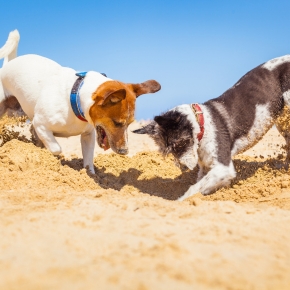
If you haven’t booked your dog-friendly UK holiday for 2024 yet, Bayswater Vets’ team have pulled together some fantastic destination ideas that your whole family can enjoy.
A UK staycation has many benefits including an abundance of pet-friendly accommodations, parks and days out, they’re cost-effective compared to travelling abroad and you’ll likely have easy access to veterinary care (just in case).
Although, to help you avoid an emergency vet visit when you’re on holiday, check out Bayswater Vets’ quick guide:
How to avoid vet visits on holiday
Best UK dog-friendly holiday spots for 2024
As voted for by Bayswater Vets’ vets & nurses:
1. Dog Friendly Holidays in Bude
Bude in Cornwall is a fantastic place to take your dog on holiday. There are several Bude beaches packed with soft sand for your dog to roll about in. Summerleaze Beach and Crooklets Beach do have restrictions between May and September (10am-6pm), but that just means if you go outside of these times, you’ll have more beach space to enjoy! Bude has lots of dog-friendly restaurants and cafes, and you can take your dog into many shops. Here’s a look at more dog friendly beaches in Bude and more things to enjoy: Dog friendly Bude
2. Dog Friendly Holidays in Anglesey
Anglesey is a real treat. Situated on the tip of North Wales, you and your dog will have over 125 miles of coastal paths to explore. Set your dog’s senses alight with walks through fishing villages, woodlands, over cliff tops, and head down to the many dog-friendly beaches. Here are even more things to do in Anglesey with your dog: Dog Friendly Anglesey
Have you been to Bude or Anglesey with your dog? Share your experiences with other London dog owners on our Facebook page.
3. Dog Friendly Holidays in the Peak District
The Peak District has so much to offer, including over 100 dog-friendly pubs to enjoy a hearty meal and a refreshing drink in after your adventures. Visit the Peak District National Park with your dog for an excellent choice of walks such as the Monsal Trail between Chee Dale and Bakewell, and the challenging Kinder Scout, with Mermaid’s Pool and Pym’s Chair along the way. Check out these Dog-Friendly Pubs in the Peak District.
Want to know how to avoid vet visits on holiday?
4. Dog Friendly Holidays in the Brecon Beacons
The Brecon Beacons National Park might not seem like your typical summer holiday destination, but this really is a hidden gem with plenty of dog-friendly walks and attractions. Plus, it’s the perfect base to explore the Welsh countryside and places like Rhossili Bay (which dogs are allowed on all year round) on the south coast. There’s plenty of dog-friendly accommodation in the Brecon Beacons too. For something extra special, our Bayswater team suggests looking at Sugar & Loaf Cottages
Have you been to the Peak District or Welsh Brecon Beacons with your dog? Share your experiences with other London dog owners on our Facebook page.
5. Dog Friendly Holidays in Northumberland
The UK’s northeast coast has it all – long stretches of golden beaches, stunning scenery, and a seemingly endless choice of unique walking trails for you all to enjoy. Northumberland’s dog-friendly beaches all year round include Alnmouth Beach, Beadnell Bay, Embleton Bay, Seahouses and Spittal Beach.
6. Dog Friendly Holidays in Galloway & Dumfries
Southern Scotland is a beautiful destination for your 2024 dog-friendly holiday. Choose from acres of forest, sandy beaches, river walks and plenty of castles to explore. Dumfries & Galloway is an ideal place to stay as it gives easy access to the surrounding areas. Read this guide on top things to do in Dog Friendly Dumfries & Galloway
Been to Northumberland or Galloway & Dumfries, or have a favourite dog-friendly destination you think London dog owners would love? Share your holiday hot spots on our Facebook page.
Before you go, remember to download Bayswater Vets’ quick guide:
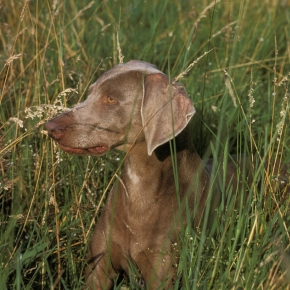
It’s that time of year again, when spring sunshine and warmer temperatures mean ticks become more of a problem. Whether you’re out and about in London or taking your dog on trips further afield, now is the time to be vigilant. Take a look at our article below in which Vet Victoria Seale, answers some commonly asked questions about ticks and the danger they pose to dogs and humans.
Guide to removing a tick safely
Bayswater Veterinary Clinic’s Tick FAQs
What are ticks?
Ticks are tiny arachnids that feed on the blood of mammals, including our beloved canine companions. While they may be small in size, ticks can pose significant health risks to dogs and their owners.
Why are ticks on dogs such a problem?
Bayswater Veterinary Clinic’s highly experienced Veterinary Surgeon Victoria Seale, explains that ticks are more than just a nuisance – they’re vectors for a variety of diseases that can affect both dogs and humans. When a tick attaches to a dog and feeds on their blood, it can transmit pathogens such as bacteria, viruses, and parasites. Some of the most common tick-borne diseases in dogs include Lyme disease, babesiosis, and anaplasmosis. Dogs travelling abroad may also be at risk of contracting ehrlichiosis from ticks, a bacterial infection that affects the white blood cells. It is rare in the UK, but could be transmitted by ticks if your dog is travelling to Europe, the USA and Africa.
Victoria shares that ticks are also highly adaptable creatures, capable of thriving in a wide range of environments, from wooded areas to urban parks. This makes it challenging to avoid exposure to ticks, especially for dogs who enjoy spending time outdoors. Additionally, ticks can be difficult to detect, as they often attach themselves to areas of the dog’s body that are hard to see, such as between the toes, inside the ears, or under the tail.
What are the health implications of tick infestations?
Victoria wants London dog owners to be aware that tick infestations can have serious health implications for dogs. In addition to transmitting diseases, ticks can cause local irritation and inflammation at the site of attachment. Some dogs may develop allergic reactions to tick saliva, leading to symptoms such as itching, redness, and swelling.
If left untreated, tick-borne diseases can cause a range of symptoms in dogs, including fever, lethargy, lameness, joint pain, and organ damage. In severe cases, untreated tick-borne diseases can be fatal. Moreover, certain tick-borne pathogens, such as those that cause Lyme disease, can also affect humans, posing a risk to pet owners and their families.
Ask our team to explain the specific symptoms of Lyme disease, babesiosis, anaplasmosis, and also ehrlichiosis if you’re taking your dog abroad.
Can you prevent dogs getting ticks?
Fortunately, there are several steps you can take to protect your dog from ticks and the diseases they carry:
- Use tick preventatives: Our vets can advise you about the best tick prevention products for your dog’s individual needs. There are many safe and effective options available, including topical treatments, oral medications, and tick collars.
- Perform regular tick checks: After spending time outdoors, it is wise to thoroughly check your dog for ticks, paying close attention to areas where ticks are likely to hide such as between the toes, inside the ears, or under the tail. If you find a tick, it’s essential to remove it promptly and safely to reduce the risk of disease transmission – download our guide on removing a tick safely here.
- Avoid tick-infested areas: When possible, avoid areas where ticks are typically prevalent, such as tall grass, wooded areas, and brushy vegetation. Stick to well-maintained trails and keep your dog on a lead to minimise exposure to ticks.
- Maintain a clean environment: Keep your garden free from tall grass, leaf litter, and other debris where ticks may thrive. Regularly mow the lawn, trim vegetation, and remove potential tick habitats to reduce the risk of infestation.
Download our guide on removing a tick safely
If you find a tick on your dog, it’s crucial to remove it properly to minimise the risk of infection. Download our guide on removing a tick safely for step-by-step instructions and helpful tips. With our guide, you’ll have the knowledge and confidence to handle tick removal quickly and effectively, helping to protect your dog’s health and wellbeing. We’re here to help if you have any difficulties with this – call us on 020 7229 2040.
Get our guide to removing a tick safely
By taking proactive measures to prevent tick infestations and promptly remove any ticks that may attach to your dog, you can help keep your furry friend safe from the dangers of tick-borne diseases. If you have any concerns about ticks or tick prevention, don’t hesitate to get in touch with our helpful team at Bayswater Vets.
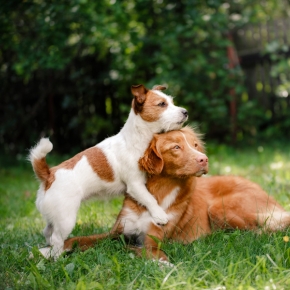
Ensuring the health and wellbeing of our canine companions is a top priority. In this article, our vets in Bayswater are emphasising how vaccination plays a crucial role in preventing the spread of infectious diseases and safeguarding the health of dogs everywhere.
So, let’s delve straight into essential information about canine infectious diseases below and our vets’ guidelines on which dog vaccinations are recommended for your furry friend.
Ready to take the first step in protecting your dog?
Book a Dog vaccination appointment today
Why vaccinate your dog
Bayswater Vets’ team of experienced vets know that vaccination is a cornerstone of preventive veterinary care, offering numerous benefits for your dog’s health:
- Disease Prevention: Vaccination helps protect your dog from potentially life-threatening infectious diseases.
- Community Health: By vaccinating your dog, you contribute to the overall health of the canine community in Bayswater and far beyond, helping to prevent the spread of diseases.
- Cost-Effective: Preventing diseases through vaccination is typically more cost-effective than treating illnesses and their complications.
- Peace of Mind: Knowing your dog is protected against common infectious diseases provides peace of mind for you as a pet owner.
Common canine infectious diseases and recommended vaccinations:
When our vets in Bayswater meet a new puppy or adult dog, they want to help them thrive. This includes talking to their owner about the importance of preventative vaccinations that cover the following diseases:
- Canine Distemper: A highly contagious viral disease affecting a dog’s respiratory, gastrointestinal, and nervous systems. Vaccination against distemper is a core vaccination for all dogs.
- Canine Parvovirus: A severe and often fatal disease that primarily affects the gastrointestinal tract. Puppies and unvaccinated dogs are particularly susceptible, making vaccination essential.
- Canine Adenovirus (Hepatitis): A viral infection that targets the liver, causing severe damage. Vaccination against adenovirus is part of the core vaccination protocol for dogs.
- Canine Parainfluenza: This respiratory virus contributes to kennel cough and is often included in the core vaccines, especially for dogs in group settings.
- Kennel Cough (Bordetella): Kennel cough is a contagious respiratory disease, particularly common in dogs who spend time in close quarters, such as boarding facilities, doggy day care, or at dog parks. Vaccination is recommended for at-risk dogs so you should discuss this with one of our vets – book an appointment.
- Leptospirosis: A bacterial infection that can affect the liver and kidneys. The vaccine is often recommended, especially for dogs with outdoor exposure or those in regions with a higher risk.
Tailored vaccination plans:
The specific vaccinations your dog requires can depend on various factors, including:
- Lifestyle: Dogs with active outdoor lifestyles or those frequently in contact with other dogs may require additional vaccinations.
- Age: Puppies require a series of vaccinations to build immunity, and core vaccination booster shots are necessary throughout their lives.
- Medical History: Some dogs may have individual health considerations that impact their vaccination needs. Our vets in Bayswater will consider your dog’s health history when creating a vaccination plan.
- Location: Geographic location can influence the prevalence of certain diseases. Discuss your dog’s environment in and around London with our vets to determine the appropriate vaccinations.
Book a Dog Vaccination appointment:
To ensure your dog is protected against common canine infectious diseases, we recommend booking a dog vaccination appointment with our veterinary practice in Bayswater. Our experienced team are dedicated to providing personalised care tailored to your dog’s individual needs.
Don’t wait – take the proactive step in safeguarding your dog’s health now.
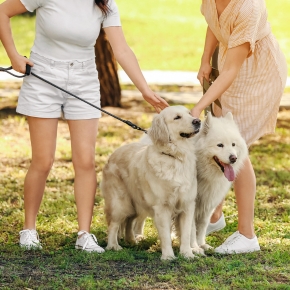
Spring marks the beginning of a beautiful season in London. It also marks the onset of ‘puppy season’ when the attraction between unneutered male and female dogs will undoubtedly ramp up.
Unplanned litters can be a challenging responsibility. That’s why dog neutering is a crucial step to prevent these. In this article, our Vet Victoria Seale will explore the reasons why dog neutering is essential for responsible pet ownership and the wellbeing of our furry friends.
Call Bayswater Vets on 020 7229 2040 to chat about dog neutering appointments available at our Alexander Street location.
Book a dog neutering consultation
Preventing unplanned litters
Spring is a time when dogs are more likely to roam in search of mates. This increases the chances of pregnancies, which can lead to a number of issues for owners of female dogs, as well as overcrowded animal shelters and homeless puppies (mostly) from strays. To help reduce the influx of spring puppies, Vet Victoria Seale says being proactive with neutering will actively contribute to reducing the strain on animal shelters and charities across London.
Health benefits for dogs
Neutering can provide several health benefits for dogs. Victoria advises that it can help to reduce the risk of certain reproductive cancers and eliminates the possibility of uterine infections in females. Neutered males are less likely to roam, reducing their risk of accidents and injuries and becoming separated from you. Contact us to book a neutering consultation.
Behavioural improvements for dogs
Neutering can also lead to positive changes in your dog’s behaviour, according to Victoria. It can often reduce territorial marking, aggression, and the desire to roam. This can result in a happier, more well-adjusted pet. Also, without having to worry about pregnancies or mating behaviours, you can provide better daily care and attention to your pet. Being ‘in season’ and phantom pregnancies are no fun for pet or owner.
Financial & health problems
Unplanned litters can lead to unexpected financial burdens, including giving them the best puppy nutrition – ask our team about this. Plus, you will need to ensure they are in good health to be adopted by a new a family, and you will have to carry out the correct research to find their perfect homes. This can be a strain on finances and time. Neutering your dog is a cost-effective way to avoid these unexpected expenses and potential health problems for your female dog during the birth.
In conclusion, neutering your dog is an essential aspect of responsible pet ownership, and it becomes even more critical during puppy season. So as spring arrives, Bayswater Vets is asking owners to consider the benefits of dog neutering and to play their part in creating a better future for our four-legged friends. Contact us on 020 7229 2040 to discuss dog neutering today.

As winter coats the roads of London with ice, you will often see the flashing orange lights of salt spreaders out and about to make the roads safe. You will also likely see salt being spread on pavements and car parks for the same reason, however, some of it can be difficult to spot.
While this solution is effective for human safety, it poses a hidden danger to our four-legged friends. Road salt, or rock salt, may keep roads and pavements clear and preventing slipping, but its impact on dogs can be quite hazardous.
Contact Bayswater Veterinary Clinic on 020 7229 2040 if you have any concerns about your dog’s health.
What is road salt?
Road salt is typically composed of sodium chloride, calcium chloride, or magnesium chloride. It is used to lower the freezing point of water. When sprinkled on icy roads and paths, it prevents the formation of ice and helps make surfaces safer for vehicles and walkers.
The dangers of road salt for dogs
Paw irritation & dehydration
According to our vet Victoria Seale, the most immediate risk for dogs is the irritation road salt can cause to their paws. When dogs walk on salted surfaces, their paw pads can become cracked, dry, and painful. This can lead to discomfort, limping, and difficulty walking.
Road salt is a desiccant, which means it can absorb moisture from a dog’s paws and skin. Extended contact with road salt can lead to dehydration and skin issues.
Oral ingestion
Dogs are known for their inquisitive nature and may lick or chew their paws after walking on salted surfaces. In doing so, they can ingest road salt, which is toxic to dogs when consumed in significant quantities causing:
a) Digestive issues
Ingesting road salt can lead to gastrointestinal upset in dogs. Symptoms may include vomiting, diarrhoea, drooling, and abdominal pain.
b) Salt toxicity
Victoria stresses that the most severe risk is salt toxicity, which can occur if a dog consumes a large amount of road salt. This can lead to symptoms such as excessive thirst, tremors, seizures, and, in severe cases, even death.
How to prevent road salt related issues
- Protective Paw Balm: Victoria suggests considering using a paw balm or wax to create a protective barrier on your dog’s paw pads before going outside.
- Booties: Dog booties provide excellent protection from road salt, keeping paws dry and safe.
- Avoid Salted Areas: Whenever possible, avoid walking your dog on salted surfaces. Choose areas with minimal salt use.
- Wipe Paws: After walks, wipe your dog’s paws with a damp cloth to remove salt and prevent ingestion.
- Indoor Rinsing: Rinse your dog’s paws with warm water when returning home to remove salt residue.
- Pet-Friendly Salt: If you need to use salt on your property, choose pet-friendly, non-toxic alternatives.
- Supervision: Always supervise your dog when they’re outside, especially around areas treated with road salt.
In conclusion, road salt is essential for human safety during winter but it poses several risks to dogs in London. By taking proactive measures to protect your dog’s paws and avoid salted areas, you can ensure their safety and wellbeing during the winter months. Remember that Victoria and the team at Bayswater Veterinary Clinic recommend that a little extra care can go a long way in keeping your furry companion healthy and happy.

A house move is a big change for the whole family to process. The team at Bayswater Vets understand that this is often a stressful and turbulent time, but Veterinary Surgeon Victoria Seale is urging dog owners to not forget how their pets could be coping with the upheaval.
To help dog owners in London with a house move, Victoria and our veterinary team at Bayswater Vets have put together advice on how your canine companion can learn to accept a house move. This will make the process a lot smoother for owners and their dogs. Our experienced team of dog vets are available to advise on an individual basis too, just book an appointment ahead of the big day.
Why not share this article with friends and family that might be moving house soon? Copy the URL or use the social sharing buttons in this article.
1. Keeping to your dog’s routine
Our Bayswater team know that most dogs and their owner have a daily routine. This may fluctuate slightly, but on the whole, it is highly likely your dog is fed, walked, played with and cuddled at a similar time every day.
As you are moving house, it will help your dog to adjust if you stick closely to this routine. Your behaviour and feelings will also have an impact on your dog’s stress levels. Trying to remain calm will in turn help your dog to react and behave as normal.
If you have the option of introducing them to your new home beforehand, it could help them to settle in more quickly. If not, then try to take them on some new local walks to get them used to the neighbourhood.
2. Your old home
Packing your home up into cardboard boxes can often be emotional and time consuming. Especially if there is a dog ‘trying to help’!
Vet Victoria Seale recommends packing gradually so your dog will get used to the changes in their living environment over time. Also, keep their bedding and toys out for as long as possible. These familiar belongings will help to provide them comfort if their old home is starting to look a little different in the run up to the move.
3. Moving day
Once you arrive at the new house, you need to ensure your dog is safe and secure as your belongings are unloaded. If possible, set up a safe space in your new house immediately for your dog. Use their normal bed, blankets, toys and bowls and work on positive associations. The scents of their items will help to make them feel at ease in an unfamiliar environment. You will need to be patient with your dog during this transition period. Work on establishing their routine in the new home and stick to it as closely as possible in the beginning.
4. After you have moved in
There will undoubtedly be a lot of administration to complete once you have officially moved into your new home. On this list, make sure you include updating your pet’s microchip details and also updating your account details here at Bayswater Vets.
Victoria believes that if you follow the guidance set out in this article, you are providing your dog with the best chance to become happy and settled in their new home as quickly as possible. If your dog suffers from anxiety, or you are concerned that a house move could affect them more seriously, contact us so we can help you make a plan.

Our veterinary team at Bayswater Veterinary Clinic will often see recurring cases of a handful of winter dog health conditions, once the temperature starts to drop in London. To educate owners and help them spot the symptoms of these winter health conditions in their dog, our Veterinary Surgeon Victoria Seale has listed the five most common ailments we treat and how best to avoid them.
Share this article with other dog owners and download our Winter Warmer Guide for Dogs – a useful reference to keep on your phone this winter.
Download our Winter Warmer Guide for Dogs
Five common health conditions we treat in winter
1. Respiratory infections
Over winter, many dogs in London will be spending more time in indoor locations due to the uncertain weather. This increase of indoor time and proximity to other dogs can lead to a spread of respiratory infections. Typical symptoms to look out for include sneezing, coughing and laboured breathing. Vet Victoria Seale wants owners to know that respiratory infections will often require a course of antibiotic treatment and other supportive management to resolve the infection.
Kennel Cough (Canine infectious respiratory disease) is one of the most common types of respiratory infections that affects all breeds and all ages, but can be particularly nasty for young, old, and unwell dogs. Kennel cough can be picked up anywhere that is frequented by other dogs, not just in kennels, and the best form of protection is an annual kennel cough vaccination.
Contact us to book a kennel cough vaccination at our Bayswater practice.
2. Salt and chemical exposure
When the temperature drops enough for it to become icy, it is important owners understand that exposure to the salt or antifreeze used to melt both ice and snow can be toxic to dogs.
At Bayswater Vets we often see cases where a dog has walked on a path which has been thawed using salt. They will then lick their paws, ingesting the salt and can become very sick. Look out for vomiting, diarrhoea and skin irritation and get into the habit of washing your dog’s paws and tummy with warm water following a walk. Also, maybe try to stick with the old-fashioned ice scraping method when it comes to defrosting your car as antifreeze is extremely poisonous for dogs (and cats).
3. Hypothermia
Many dog breeds have adapted to winter weather. For example, winter in London is usually child’s play for huskies and Alaskan malamutes. But the finer breeds, and those bred typically for hotter climates, will struggle in the colder temperatures. Victoria advises that hypothermia often occurs in dogs when their fur becomes wet, or they are exposed to cold temperatures for a long period of time. Symptoms of hypothermia in dogs include shivering, lethargy, and difficulty walking.
Hypothermia is extremely dangerous for dogs; if it isn’t treated promptly, it can cause the whole body to shut down, which is life-threatening.
If you notice any of the symptoms above, bring your dog inside and wrap them in a blanket – dry them first if they are wet. Contact us on 020 7229 2040 and then start to warm your dog up slowly, perhaps near a fire or using a heating pad. Our experienced team of Bayswater dog vets will be able to triage whilst a plan is put in place.
Get our Winter Warmer Guide for Dogs
4. Frostbite
Victoria explains that frostbite occurs on dogs when they are exposed to cold temperatures for too long and the skin and tissue layers underneath can freeze. This is particularly common during winter in dogs with thin fur and exposed skin; symptoms include swelling and discolouration of the skin. Areas to monitor are the tips of the ears, tip of the tail and their paws. Bayswater Vets will treat frostbite by slowly warming the affected area but care must be taken to not further damage the tissue.
If you suspect your dog may have frostbite, contact us straight away on 020 7229 2040.
5. Foreign body ingestion and toxicity
With winter comes the Christmas and New Year festivities. Vet Victoria knows this is a common time for alcohol and chocolate to be readily available in homes but urges owners to keep this out of reach of dogs (and other pets). Both chocolate and alcohol are toxic to dogs and cause severe poisoning. Look out for symptoms such as vomiting, diarrhoea, increased thirst, panting, restlessness, excessive urination, and a very high heart rate. Contact us immediately if you suspect your dog has ingested a toxic substance.
Christmas decorations can also be tempting for dogs to play with, often accidentally swallowing them. This may lead to emergency surgery so take extra care to only use appropriate decorations and monitor your dog to keep them safe.
Pre-winter health check
We recommend booking your dog in with our team for a thorough health check ahead of the colder weather so we can rule out any new underlying health conditions that could become painful for your pet.
The cold can often exacerbate a dog’s suffering caused by arthritis and joint pain. This will make exercising uncomfortable for your dog. Icy paths and muddy/snowy walks can be difficult for any dog to navigate, especially if they are struggling with a joint condition, and can result in injuries. The temperature can also increase viral infections so it’s worth ensuring your dog is up to date with their booster vaccinations – book now.
This pre-winter health check can help to ensure your pet is going into the cold festive season fighting fit and may help to identify health conditions that need treatment sooner rather than later. Contact us on 020 7229 2040 to book a health check for your dog, or book online, and don’t forget to download our helpful guide below.
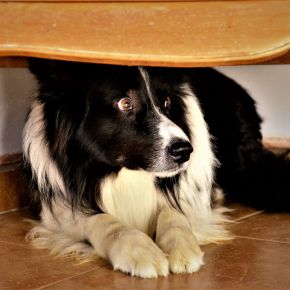
With firework season well underway, this often-stressful time may be useful in working out if your dog could have a noise phobia. Our team of dog loving vets at Bayswater Vets want owners to be aware that there is a fine line between a normal fear response and a noise phobia, that can vary between animals. Read Veterinary Surgeon Victoria’s advice and talk to us about your dog’s reaction to fireworks.
How do I know if my dog has a noise phobia?
Veterinary Surgeon Victoria Seale wants London dog owners to know that it is perfectly natural, if unsettling, for your dog to be scared of fireworks due to the sudden loud noises they create. However, your dog may have an actual phobia of noise if their fear response becomes excessive. Some signs to look for are:
- Physical signs of stress, such as pacing, trembling or drooling
- Attempting to hide or seek out a safe space during the event
- Changes in habits – such as a change in appetite or going to the toilet in the house
- Persistent fear and anxiety long after the event has ended
- Destructive behaviour
- Attempting to escape – this could lead to injury
- Extreme fear and panic during firework displays, even if they are barely audible and distant
Help your pet cope with their noise phobia
Whilst firework displays are usually limited to certain times of year, if your dog’s noise phobia starts to affect them in their everyday life it is essential you contact Bayswater Vets for help. If household noises or television noises starts to worry them, it can impact their quality of life. Early intervention and appropriate management strategies can help to keep them happy and feeling safe so book an appointment at our Bayswater surgery for your dog.

Although most common in senior dogs, did you know that canine arthritis can affect dogs of all ages?
Bayswater Vets’ team of experienced veterinary surgeons treat pets with arthritis every week and have put together this guide to help pet owners understand when they should intervene with veterinary attention.
Take our canine health assessment to see if your dog may be suffering from arthritis.
Could your dog have arthritis? Find out here
We’re also highlighting that September is Pet Pain Awareness Month and the ideal time to start monitoring your pet’s comfort levels.
What is canine arthritis?
Our Veterinary Surgeon Victoria Seale explains that canine osteoarthritis, commonly known as arthritis, is a degenerative condition that unfortunately has no cure. It causes the cartilage within your dog’s joints to deteriorate – this cartilage acts as cushioning between their bones so, when this cushioning becomes worn, it causes them pain as their joints move.
Canine arthritis is known to affect mostly older dogs; however, some younger dogs can suffer too. It is worth noting that most dog breeds become senior between the ages of 5 and 9 years old so you may start to notice signs of arthritis earlier than you may expect.
Spotting signs of arthritis in your dog
Some of the common signs of arthritis you may notice in your dog include limping, stiffness, and changes in mobility, demeanour and behaviour.
Download our health assessment quiz to work out if your dog may be showing signs of arthritis.
If it appears so, book an appointment with Victoria or any of Bayswater Vets’ experienced vets as soon as possible. Your vet will perform a physical examination, discuss what symptoms you have seen your dog exhibit, review their medical history and then possibly organise further diagnostic testing to ascertain how advanced the arthritis has become.
Book an appointment for your dog at https://www.bayswaterveterinaryreferrals.co.uk/ online.
How will the vet treat your dog’s arthritis?
- Physical therapy – your vet may prescribe complementary therapies to help alleviate your dog’s pain. Hydrotherapy, acupuncture, laser therapy, gentle massage and different range-of-motion exercises can all help to improve your pet’s mobility and comfort levels.
- Medications – these will help to control your dog’s pain. Our vets may prescribe non-steroidal anti-inflammatory drugs.
- Weight management – a balanced diet and regular exercise tailored to your dog’s needs will help to maintain a healthy weight, in turn reducing the stress on their joints. Low-impact exercises can help maintain muscle strength and joint flexibility.
- Supplements – your vet may recommend certain supplements to help support your pet’s joint health. Book an appointment to chat to them about what to look for in a supplement and how it could benefit your dog.
- Home management – ensuring your dog has a supportive bed and ramps to access rooms with stairs can help to relieve their joint pressure. Non-slip rugs and flooring can also help, as can mobility aids. Talk to our vets for more advice.
Booking your dog in at Bayswater Vets regularly as they get older will help to keep on top of their healthcare and provide the support they need for their twilight years. With just a few changes, you could help your arthritic dog maintain a healthy lifestyle and remain comfortable.
Download our health assessment quiz today and help your dog battle arthritis.




